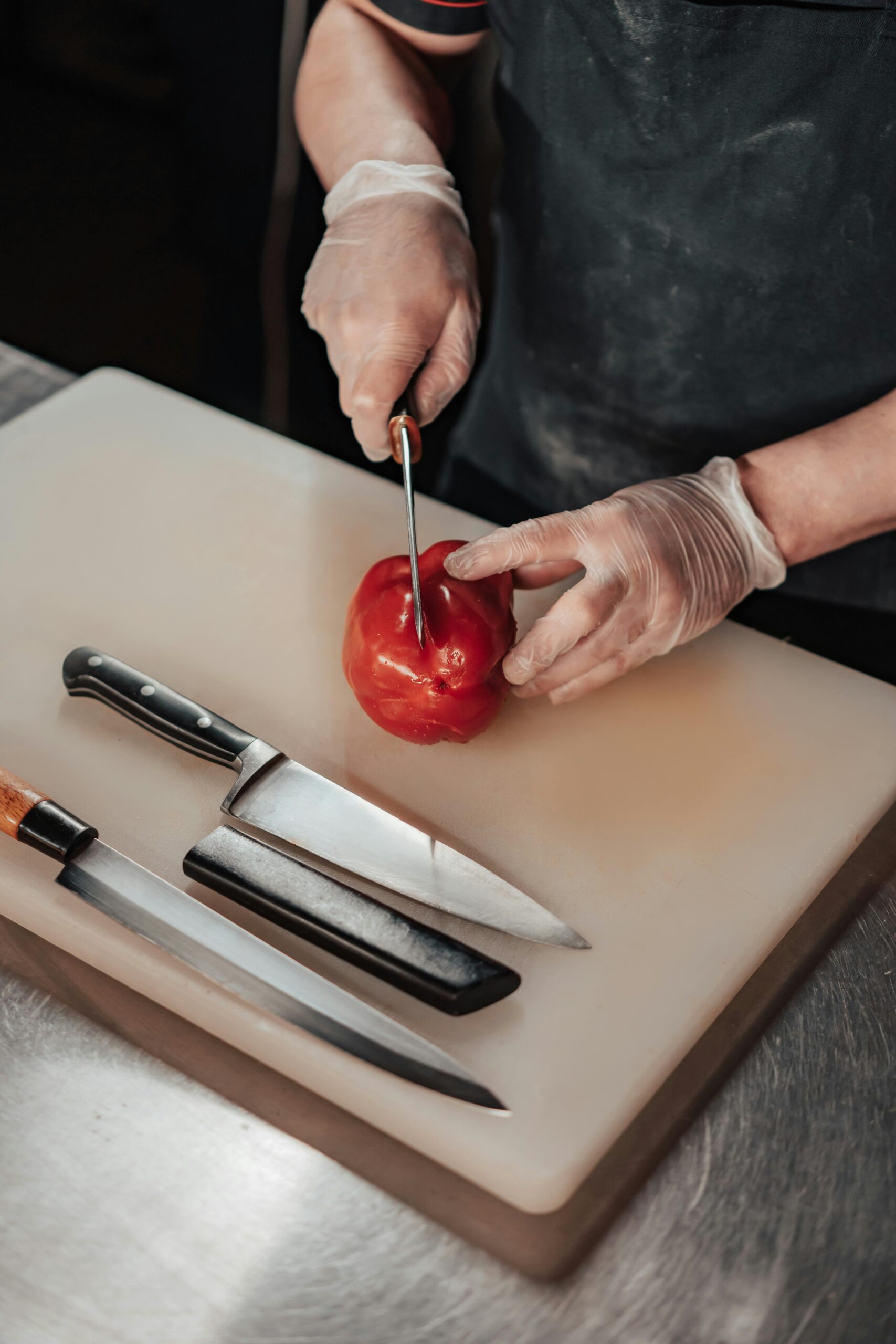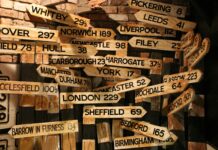When it comes to Sheffield knives, have you ever wondered what makes them so exceptionally durable and sharp? Sheffield, a city renowned for its rich history in steel production, has been crafting top-quality knives for centuries. These knives are not just kitchen tools; they are masterpieces of craftsmanship and precision. Are you searching for the best Sheffield kitchen knives that combine tradition with modern technology? You’re in the right place! The secret behind Sheffield’s cutting-edge blades lies in the unique blend of high-carbon steel and expert forging techniques, delivering unparalleled sharpness and longevity. Many people don’t realise that owning a genuine Sheffield knife can transform your cooking experience, making chopping, slicing, and dicing much easier and more enjoyable. Curious about which Sheffield chef knives are trending right now? From classic designs to innovative ergonomic handles, the variety is vast and exciting. Whether you’re a professional chef or a home cook, investing in authentic Sheffield knives is a decision you won’t regret. Discover how these blades are setting new standards in the culinary world and why they remain a favourite among knife enthusiasts worldwide. Don’t miss out on exploring the finest Sheffield cutlery sets that promise precision, style, and unmatched performance!
Discover the Top 5 Reasons Sheffield Knives Are Loved by Professional Chefs
Sheffield Knives: The Legendary Blades That Still Cut Through Time
If you ever heard about Sheffield knives, you probably knows they are one of the most renowned blades in the world. Sheffield, a city in South Yorkshire, England, has been making knives for centuries, and honestly, the reputation they earned is pretty well deserved. Not really sure why this matters, but the tradition of knife making there goes back to the 14th century, which sounds impressive, right? The steel and craftsmanship that goes into these knives have made them sought after by chefs, collectors, and outdoorsy types alike.
A Brief History of Sheffield Knives
The history of Sheffield knives can’t be told without mentioning the steel itself. Sheffield was famous for producing high-quality steel, often called “Sheffield steel,” which was stronger and more durable than most others. This steel was a game changer for knife makers worldwide.
| Year | Event |
|---|---|
| 14th Century | First recorded cutlery production in Sheffield |
| 1740 | Benjamin Huntsman invents crucible steel |
| 19th Century | Sheffield becomes centre for cutlery and tool making |
| 21st Century | Sheffield knives go global with modern innovations |
Maybe it’s just me, but I feel like the whole “crucible steel” thing is overhyped sometimes. Sure, it made the knives better, but you can’t just rely on steel — the design and the skill of the maker matters loads too.
Why Sheffield Knives Stand Out?
People often asks, “what makes Sheffield knives so special?” It’s a mix of factors, honestly. First, the high carbon Sheffield knives are known for holding a sharp edge for ages. They don’t dull quickly, meaning you don’t have to sharpen them every two seconds like some other blades. Also, the balance and weight of these knives often feels just right — not too heavy and not too light, which make chopping veggies or meat a breeze.
Here’s a quick list of why these knives are favoured:
- Exceptional sharpness and edge retention
- Traditional craftsmanship combined with modern tech
- Versatility for kitchen, hunting and outdoor use
- Heritage and brand trust from centuries of experience
That said, some folks complain that these knives can be a bit pricey. True, you’re paying for quality, but if your budget is tight, you might find cheaper options that gets the job done. Not always, but sometimes it’s worth considering.
Types of Sheffield Knives You Should Know
When talking about types of Sheffield knives, you’ll find a wide range to suit different needs. Here’s a table breaking down the common categories:
| Type | Use Case | Notable Features |
|---|---|---|
| Chef’s Knife | General kitchen use | Versatile, sharp, balanced |
| Paring Knife | Peeling and small tasks | Small blade, precise control |
| Hunting Knife | Outdoor and survival | Sturdy, tough blade, ergonomic handle |
| Pocket Knife | Everyday carry | Compact, foldable, multi-purpose |
Honestly, I couldn’t live without my Sheffield hunting knife during camping trips — it just feels sturdier than most other knives I tried. But then again, I’m a bit biased since I like that rugged feel.
Buying Tips for Sheffield Knives
If you’re thinking about buying a Sheffield knife, here’s a few tips to keep in mind:
- Know your purpose: Are you looking for a kitchen knife or something for outdoors? This will narrow down your choices.
- Check the steel type: High carbon steel is great for sharpness, but stainless steel resists rust better.
- Handle comfort: Don’t underestimate the grip and feel of the handle; you want it comfy for long use.
- Price vs Quality: Sometimes paying a bit extra means you get a knife that lasts decades, but don’t get ripped off either.
- Brand reputation: Look out for established Sheffield brands — they often maintain higher quality standards.
Fun Facts About Sheffield Knives
- Sheffield was once known as “Steel City” because of its dominance in steel and cutlery production.
- The city makers supplied blades for the British military in both World Wars.
- Some Sheffield knives are still handmade using traditional methods, which is kinda cool in this age of machines.
Practical Insights: Using and Caring Your Sheffield Knives
To get the most out of your Sheffield knives, you gotta look after them properly. Here’s a quick do’s and don’ts sheet:
| Do’s | Don’ts |
|---|---|
| Hand wash your knives with warm soapy water | Don’t put them in the dishwasher |
| Dry immediately after washing | Avoid cutting |
How Sheffield Knives’ Superior Craftsmanship Transforms Your Cooking Experience
Sheffield Knives: The Blades That Cut Through Time (and Maybe Your Veggies)
When it comes to Sheffield knives, there’s something almost magical about them that make you wanna slice and dice everything in sight. Maybe it’s just me, but I feel like these knives got some kinda special mojo that other knives just don’t have. Sheffield, a city in England, has been known for its cutlery for ages—like, literally centuries. Not really sure why this matters, but apparently, the steel they use is super special, which probably makes the knives sharper and longer-lasting than your average kitchen tool.
The History Bit (Because We All Need A Bit Of That)
Sheffield’s been making knives since the 14th century, or so they say. The secret was their use of crucible steel which was invented in the 18th century, making their blades really strong and durable. People from all over the world, including chefs and collectors, seek out authentic Sheffield knives because of this reputation. You might ask, “Why would I care about 300-year-old knives?” But hey, quality is quality, no matter how old it is.
| Year | Event | Impact on Sheffield Knives |
|---|---|---|
| 14th century | First mention of cutlery trade | Sheffield starts gaining reputation |
| 1740 | Crucible steel invented | Stronger, sharper knives produced |
| 19th century | Industrial revolution | Mass production started, knives become affordable |
| Present day | Modern designs & materials | Blend of tradition and innovation in blades |
Types of Sheffield Knives You Might Run Into
I gotta tell you, there’s more than just your typical kitchen knife in Sheffield’s arsenal. Here’s a cheeky list of some types you could find:
- Sheffield kitchen knives set: Usually come in a box, and you get everything from a paring knife to a big chef’s knife. Handy for cooking all sorts of meals, unless you’re just boiling water, then maybe not so much.
- Sheffield pocket knives: Perfect for people who like to carry a blade around for whatever reason. Camping, opening parcels, or just pretending to be a spy.
- Sheffield hunting knives: These are a bit more rugged, sharp enough to gut a deer or, you know, just slice up some meat at home.
- Sheffield carving knives: Ideal for slicing your Sunday roast, but also great for impressing your in-laws when dinner time comes.
Material Matters (Or Does It?)
You probably think all knives are made equal, but nope, with best Sheffield knives steel, there’s a whole science behind it. Most traditional Sheffield knives are made from high carbon stainless steel, which means they’re sharp but also resist rust. Though, sometimes high carbon steel can get a bit of a stain if you’re not careful, which is why some people swear by stainless steel variants.
Fun fact (or not): Some collectors prefer knives with a bit of patina because it shows character. Like a good whisky, but for your knife.
Practical Insight: How To Choose Your Sheffield Knife
Now, if you’re like me and get overwhelmed choosing knives, here’s a quick cheat sheet to help you out:
| Purpose | Recommended Sheffield Knife Type | Why? |
|---|---|---|
| Everyday cooking | Sheffield kitchen knives set | Versatile and covers all basics |
| Outdoor activities | Sheffield pocket knives or hunting knives | Durability and portability |
| Carving meats | Sheffield carving knives | Precision slicing |
| Collecting/Display | Vintage Sheffield knives | Historical value and craftsmanship |
Honestly, picking a knife can be daunting, but don’t stress too much. At the end of the day, even a blunt knife can do the job if you try hard enough (not recommended though).
Why The Fuss About Sheffield Knives Anyway?
Maybe it’s just me, but I feel like people make a bigger deal out of Sheffield knives than necessary. Sure, they’re good, but not like they’re magic wands or anything. But if you’re a chef or just someone who enjoys cooking, having a Sheffield knife set might just make your chopping sessions a bit more enjoyable. Plus, they look pretty cool on your kitchen rack.
Here’s a quick rundown of what people usually rave about:
- Longevity: These knives can last you decades, if you look after them properly.
- Sharpness: Cuts through meat, vegetables, and even your stubborn fingers (ouch).
- Heritage: Owning a piece of Sheffield cutlery means owning a bit of history.
- Variety: So many styles and designs to choose from, you’ll never get bored.
Care Tips for Your Sheffield Knives (
What Makes Sheffield Stainless Steel Knives the Ultimate Kitchen Essential in 2024?
Sheffield knives have been a big deal for centuries now, and honestly, it’s hard to imagine kitchen or even outdoor gear without them. The town of Sheffield in England, famous for its steel production, has been crafting these blades since the 14th century or even earlier. Not really sure why this matters, but the steel quality they use supposedly makes all the difference in sharpness and durability. People always talking about best Sheffield kitchen knives for chefs like it’s some kind of holy grail.
Why Sheffield Knives Are So Special?
First off, Sheffield knives are made from high-carbon stainless steel, which means they stays sharp longer than most other knives out there. You could probably cut through a tomato and then a rope without even needing to sharpen the blade. Or at least, that’s what the manufacturers claim. Maybe it’s just me, but I feel like sometimes the hype is a bit much and you’re paying for the name rather than the actual cutlery.
| Feature | Sheffield Knives | Regular Knives |
|---|---|---|
| Steel Quality | High-carbon stainless | Various, often mixed |
| Edge Retention | Long-lasting sharpness | Dulls faster |
| Price Range | Mid to high | Low to mid |
| Heritage | Centuries-old tradition | Newer, less history |
Despite the price, many kitchen enthusiasts swear by authentic Sheffield knives set because they feel like they are using a slice of history in their own kitchen.
The Different Types You’ll Find
There are many kinds of Sheffield knives, and they are not just for chefs or butchers. People have knives for all sort of purposes, from everyday kitchen use to outdoor survival. Here’s a quick list of the most popular types:
- Sheffield carving knives – great for slicing meats perfectly, though I always wonder if you really need a “special” knife for that.
- Sheffield pocket knives – handy for camping or just showing off a bit on pub nights.
- Sheffield chef’s knives – the classic go-to for most cooks, sharp and balanced.
- Sheffield bread knives – serrated edges that make cutting crusty bread less of a disaster.
If you’re looking for how to choose Sheffield knives for your kitchen, you need to consider the blade length, handle comfort, and steel type. It’s not rocket science, but some folks get all picky about microns of sharpness or weight balance.
A Quick Guide to Maintaining Your Sheffield Knives
Taking care of these knives isn’t that complicated, but many people mess it up badly. Here’s a simple maintenance checklist:
| Step | What to Do |
|---|---|
| Cleaning | Wash with warm soapy water, dry immediately |
| Sharpening | Use a whetstone or sharpening steel regularly |
| Storage | Keep in a knife block or magnetic strip |
| Avoid | Dishwashers and soaking for long periods |
Not cleaning your knife properly can actually ruin that expensive steel quicker than you think. Plus, if you leave it wet, rust might form. And nobody wants a rusty Sheffield knife, do they? Also, sharpen your knives now and then or you’ll be hacking at veggies like a caveman.
Sheffield Knives vs Other Brands: The Debate
People often ask, “Are Sheffield knives better than other brands?” Honestly, it depends on what you want. Sheffield knives have that legacy and generally perform well, but other brands might offer better warranties or cheaper options. For example, Japanese knives are famous for their precision, but they can be more delicate. American knives might be rugged but lack the finesse.
| Brand | Pros | Cons |
|---|---|---|
| Sheffield Knives | Durable, historical, sharp | Can be pricey, sometimes heavy |
| Japanese Knives | Extremely sharp, precise | Fragile, expensive |
| American Knives | Robust, affordable | Less sharp, bulkier |
If you’re really into buying Sheffield knives online, make sure you check reviews and seller credibility. There’s a lot of knock-offs pretending to be “genuine Sheffield,” and you don’t want to end up with a knife that’s as dull as a butter knife.
Some Practical Tips for Using Sheffield Knives
- Always use a cutting board; don’t hack on your kitchen counter unless you want to wreck your blade.
- Don’t try to cut through bones with a chef’s knife; use a cleaver or a specialised bone saw.
- Hold the knife properly, with a firm grip but don’t choke it like you’re strangling someone.
- Keep your knives out of kids’ reach. No matter how tough you think your kid is, knives are
The History Behind Sheffield Knives: Why They Remain the Chef’s Favourite Choice
Sheffield knives have been famous for centuries, and if you ever been to England, you probably heard about it. But why Sheffield? Well, it’s this city up north in Yorkshire that somehow got famous for making knives that are sharp and durable. Not really sure why this matters, but apparently, the secret lies in the steel they used and the craftsmanship, which is something you don’t just find everywhere.
When talking about best Sheffield knives for chefs, it’s important to know that these knives aren’t just some ordinary kitchen tools. They’re like a mix of history and quality forged into one blade. Sheffield steel is known for its high carbon content, which makes the knives hold their edge longer than your average knife. But, sometimes, people complain they’re a bit pricey, and maybe it’s just me, but I feel like good knives are worth every penny anyway.
If you’re curious, here’s a quick look at what makes Sheffield knives stand out:
| Feature | Description |
|---|---|
| Material | High carbon stainless steel |
| Sharpness | Extremely sharp, holds edge well |
| Durability | Very durable, resists rust and corrosion |
| Design | Classic, ergonomic handles for better grip |
| Price Range | Moderate to high depending on the model |
Not all Sheffield knives are made equal, though. Some are more suited for professional chefs, while others are great for home cooks who want a bit of that fancy feel in their kitchen. The top-rated Sheffield kitchen knives often have a full tang blade, which means the metal runs through the handle, giving it better balance and strength. You don’t want a knife that feels flimsy when you’re trying to chop onions, right?
One thing that’s quite confusing if you’re new to buying knives is the difference between forged and stamped Sheffield knives. Forged knives are made by heating a chunk of steel and hammering it into shape, which makes it tougher and heavier. Stamped knives, on the other hand, are cut from a sheet of steel and are usually lighter and cheaper. The forged Sheffield knives tend to be more expensive, but many believe they last longer and perform better. But hey, some people swear by stamped knives too, so it’s not like there’s a one-size-fits-all answer.
Alright, let’s have a quick list here of popular Sheffield knives categories you might want to check out:
- Sheffield carving knives – perfect for slicing roast beef or turkey.
- Sheffield paring knives – small, handy, and great for peeling fruits.
- Sheffield chef’s knives – the all-rounder for chopping, dicing, and mincing.
- Sheffield bread knives – serrated edges that cut through crusty bread without squashing it.
Funny thing is, despite all this, some folks think Sheffield knives are overrated just because of the name. Maybe it’s jealousy? Or just because they never tried one. It’s hard to say. But if you want to be fancy in your kitchen, owning a premium Sheffield knives set will definitely give you some bragging rights.
Here’s a simple checklist if you’re thinking about buying Sheffield knives online:
| Step | What to look for |
|---|---|
| Blade material | High carbon stainless steel preferred |
| Handle comfort | Ergonomic, non-slip grip is a bonus |
| Weight & balance | Should feel balanced, not too heavy or too light |
| Maintenance | Some require hand washing and regular sharpening |
| Warranty & brand | Trusted brands usually offer good after-sales service |
Sometimes, I wonder why people even bother with cheap knives when Sheffield knives exist. Yeah, I know, not everyone has the budget, but honestly, investing in a decent Sheffield kitchen knife set might save you money in the long run. Cheap knives get blunt quickly, and you end up replacing them more often, which is just annoying. Also, dull knives are dangerous, believe it or not. You’d think a blunt knife wouldn’t cut, but it slips and causes accidents more than sharp ones.
Oh, and for those who are worried about maintenance, Sheffield knives aren’t that high-maintenance as some people say. You don’t have to sharpen them every day, but a good honing every now and then helps a lot. Plus, avoid throwing them in the dishwasher unless you want a dull blade and a ruined handle. Trust me on this one.
Maybe it’s just me, but there’s something satisfying about holding a Sheffield knife in your hand, knowing you’re using a tool with a bit of history behind it. And if you’re into cooking, it might just make your chopping experience a bit more enjoyable, or at least less of a chore.
To wrap this up (but not really a conclusion
Sheffield Knives vs Other Brands: Which Offers the Best Sharpness and Durability?
Sheffield knives – a name that rings bells for anyone who’s ever held a decent blade in their hand. Honestly, it’s hard to talk about cutlery without bringing up this place, coz Sheffield knives been the standard for sharp and reliable blades for like centuries now. Not really sure why this matters, but the city itself got this long history of steel making that kinda makes it the go-to for anyone wanting a knife that won’t snap after a couple uses.
If you’re after best Sheffield kitchen knives, you’re probably looking at something that’s not just sharp but also durable. The steel used in Sheffield knives are something special – it’s not just any old metal, it’s specially crafted to keep its edge longer than most others. And here’s the thing, you don’t need to be a fancy chef to appreciate that, coz a knife that stays sharp means less time sharpening and more time chopping, right?
Now, if you think all Sheffield knives are the same, you’d be wrong. There’s a whole bunch of varieties, from the traditional hunting knives to those sleek, modern kitchen knives that look like they came straight out of a sci-fi film. Maybe it’s just me, but I feel like the design of Sheffield forged knives really balances between classic and modern, giving you the best of both worlds.
Here’s a little table I put together to give a quick glance at some of the popular types of Sheffield knives and what they’re best for:
| Knife Type | Best Use | Noteworthy Feature |
|---|---|---|
| Sheffield Chef’s Knife | General kitchen prep | Balanced weight, sharp edge |
| Sheffield Hunting Knife | Outdoor and survival | Strong blade, comfortable grip |
| Sheffield Paring Knife | Detailed, small cutting tasks | Precise tip, easy to manoeuvre |
| Sheffield Bread Knife | Cutting bread and baked goods | Serrated edge, easy slicing |
Talking about serrated edges, those Sheffield bread knives are something else. They’re not just good for bread but also do wonders on tomatoes and other soft fruits. The serrations help grip and slice without squashing, which is a pain with normal knives. If you haven’t tried one, you’re missing out.
One thing that often get overlooked when buying Sheffield knives is the handle. People think it’s all about the blade, but a bad grip can ruin your entire chopping experience. The good news is, Sheffield knives usually come with handles made from quality materials like wood, plastic, or composite, designed to fit nicely in your hand. Though, sometimes the handles can be a bit slippery if you’re dealing with wet hands – just sayin’.
I once bought a set of Sheffield stainless steel knives and found out that while the blades didn’t rust easily, the handles started to look a bit worn after a few months. Not a deal breaker, but something to keep in mind if you want your knives looking pristine for years.
So, you might wonder how these Sheffield knives are made. Well, here’s a quick rundown of the process — and yeah, it sounds kinda old-school but that’s part of the charm:
- Steel selection – picking the right alloy for strength and sharpness.
- Forging – heating and hammering the steel into shape.
- Grinding – shaping the blade edge.
- Heat treating – strengthening the blade.
- Polishing and finishing – making it look good and ready for use.
- Attaching handle – ensuring the grip is comfy and secure.
Not gonna lie, watching a blacksmith hammer out a Sheffield knife is pretty mesmerising. The sparks flying and the rhythmic pounding, it’s like watching some sort of medieval magic happen.
If you’re serious about collecting or using knives, you might want to think about Sheffield knife sharpening services too. It’s no secret that even the best knives dull over time, and sharpening is an art by itself. Some people swear they can sharpen their knives at home, but I’m not convinced it’s always worth the hassle. There’s just something about handing your blade over to a pro who knows what they’re doing.
Here’s a quick list of pros and cons for buying Sheffield knives:
Pros:
- Long history of quality craftsmanship.
- Durable and sharp blades.
- Variety of knives for different needs.
- Good balance between tradition and innovation.
Cons:
- Can be pricey compared to generic brands.
- Some handles may wear out quicker.
- Not all knives are dishwasher safe (you should hand wash anyway).
- Sharpening might be needed more often than expected.
And for those who like a bit of fun trivia, did you know that Sheffield was once called “Steel City”? It’s not just a nickname, the city practically built itself on steel production, which explains why Sheffield steel knives have such a good reputation worldwide.
Conclusion
In conclusion, Sheffield knives have rightfully earned their reputation as a symbol of quality, craftsmanship, and tradition. From their rich history dating back to the steel industry boom to the meticulous forging techniques that blend innovation with time-honoured skills, these knives continue to stand out in both domestic and professional kitchens. The combination of durable materials, ergonomic design, and sharpness ensures that Sheffield knives deliver exceptional performance and longevity. Whether you are a seasoned chef or a cooking enthusiast, investing in Sheffield knives means choosing reliability and excellence. For those looking to enhance their culinary experience or add a touch of British heritage to their kitchen tools, exploring the range of Sheffield knives is undoubtedly worthwhile. Embrace the legacy and quality that Sheffield offers, and elevate your cooking with knives that have been trusted for generations. Don’t miss the opportunity to own a piece of this iconic craftsmanship.













